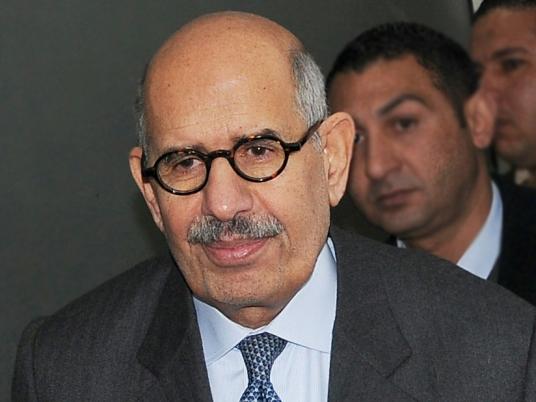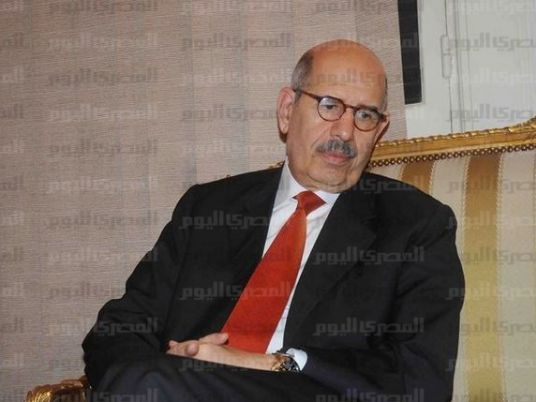Mohamed ElBaradei, former director of the International Atomic Energy Agency and would-be candidate in Egypt’s 2011 presidential elections, issued his first official statement since the establishment last week of his National Association for Change (NAC). The NAC includes representatives from across the political opposition under the motto, "Together We Change."
In his statement, ElBaradei said that the NAC would strive to establish a political system based on "genuine" democracy and social justice. The first step towards achieving this goal, he said, was to guarantee free and transparent elections–both parliamentary and presidential–in which all eligible Egyptian voters were free to take part.
ElBaradei listed several demands aimed at ensuring electoral transparency. These included an end to Egypt’s longstanding state of emergency; empowerment of judicial authorities to allow for full judicial oversight of elections; electoral supervision by local civil society and the international community; the provision of equal media time for all candidates; a system by which Egyptians expatriates can cast their votes at Egyptian embassies abroad; guarantees of the right to candidacy away from arbitrary restrictions; the establishment of a two-term limit on the office of president; and the use of national identification numbers in the balotting process.
ElBaradei went on to say that the realization of the above conditions would require the amendment of three articles of the Egyptian Constitution, namely, Article 76, which lists the prerequisites for presidential nomination; Article 77, which tackles the issue of term limits; and Article 88, which regulates judicial supervision of elections.
He noted that the NAC’s objective was not simply to change the rules of the electoral game–or to put forward a particular nominee–but to promote popular support for peaceful political change. ElBaradei emphasized that the NAC was open to all Egyptians–inside Egypt or abroad–that demand a new national charter that guarantees the dignity of all Egyptians and can serve as a basis for social and economic reform.
ElBaradei went on to announce the selection of political science professor Hassan Nafaa as NAC general coordinator.
In a related development, the Administrative Court named 4 March as the date for considering an appeal raised against a recent decision by the notary authorities to disallow the issuance of proxies authorizing ElBaradei to represent members of the public.
According to Safwan Mohamed, coordinator of the popular "I Demand My Rights" opposition campaign, notary offices have rejected proxy applications following orders to this effect issued by state security organs. He called upon all ElBaradei supporters to attend the scheduled court session as a means of showing solidarity with the movement.
Mohamed went on to note that ElBaradei, at a recent meeting with members of his campaign, had stressed the importance of using proxies as a legal tool for reform. He added that his campaign was currently in the process of preparing lists of those willing to issue proxies in the event that the court rules against the proxy ban.
Translated from the Arabic Edition.



